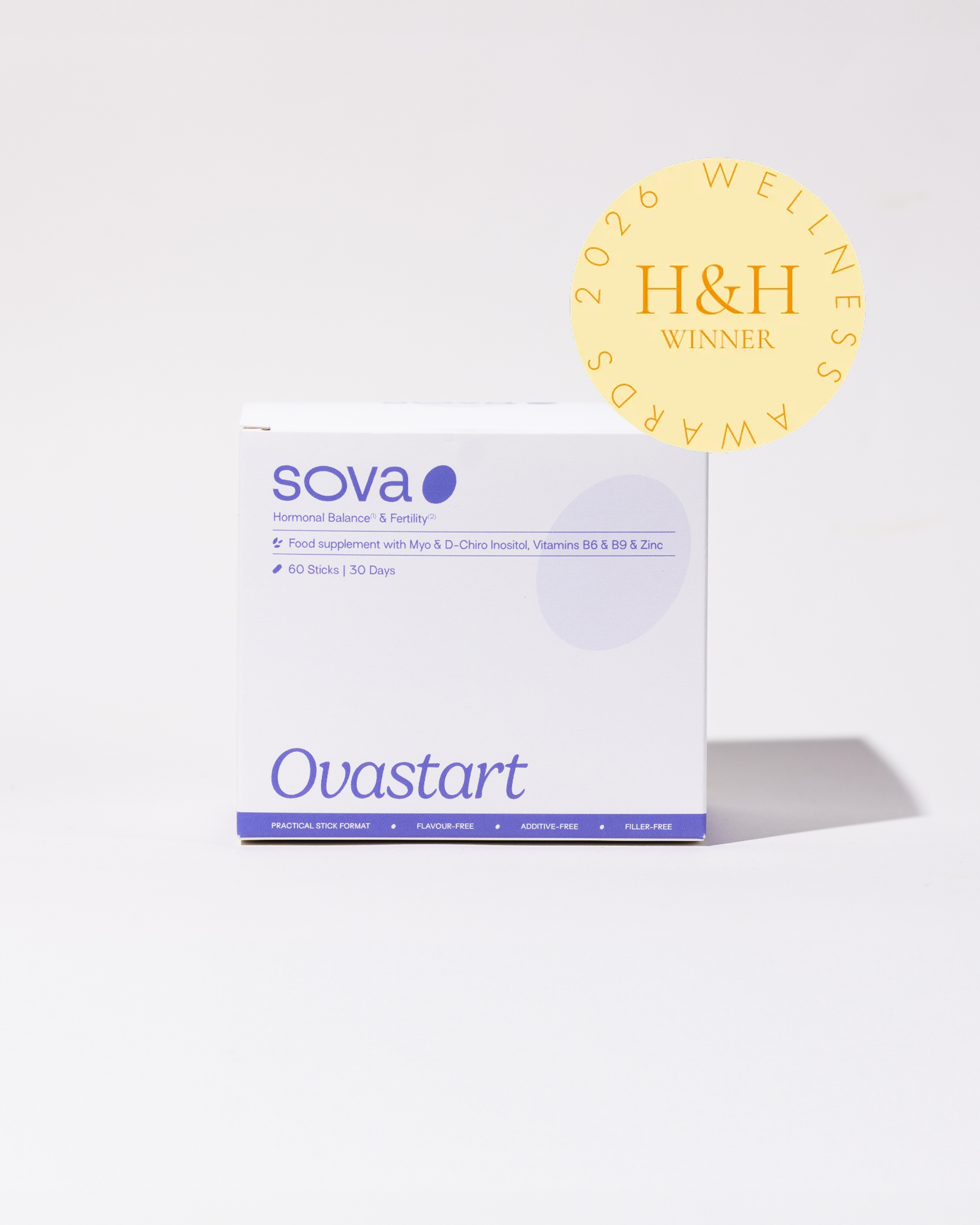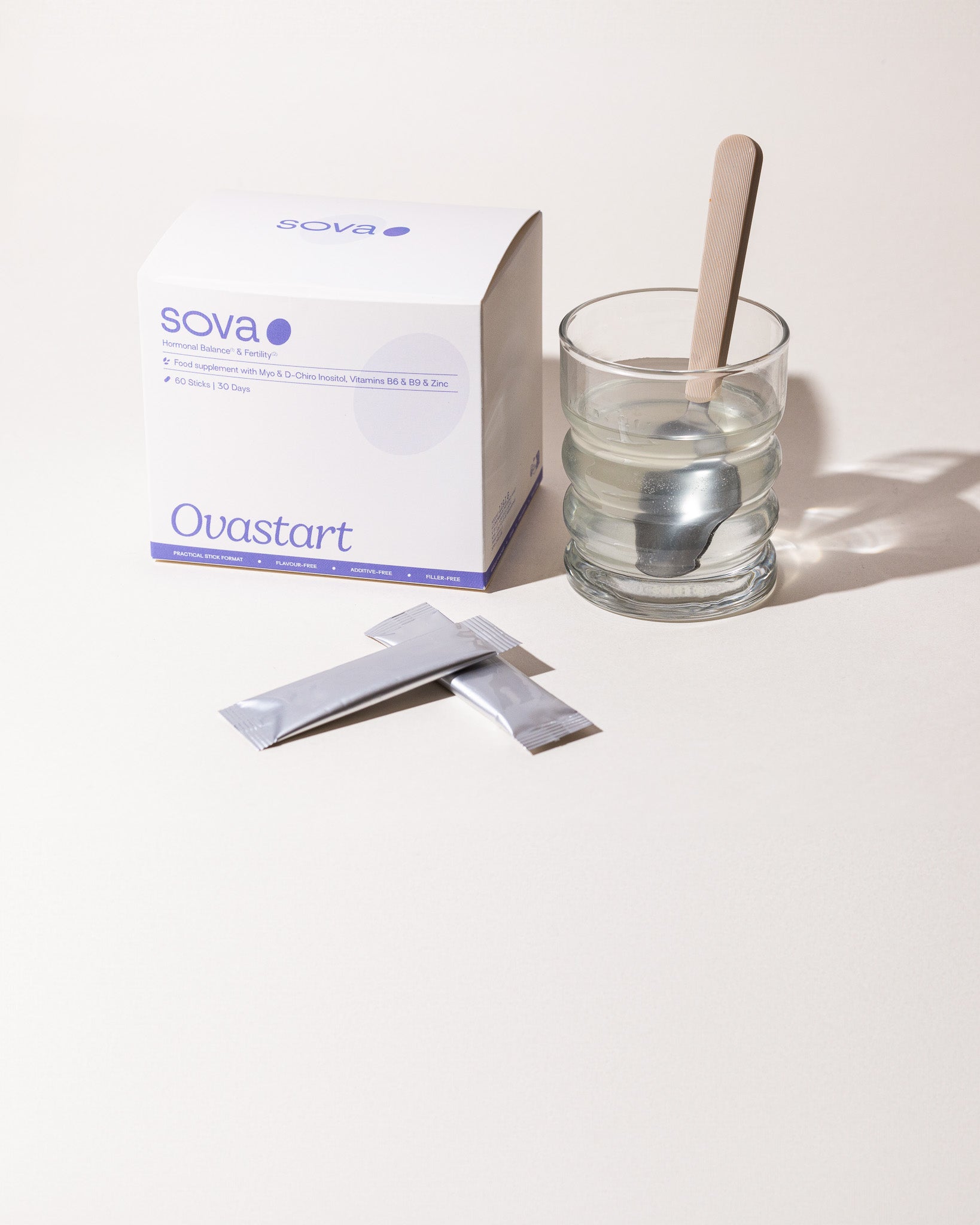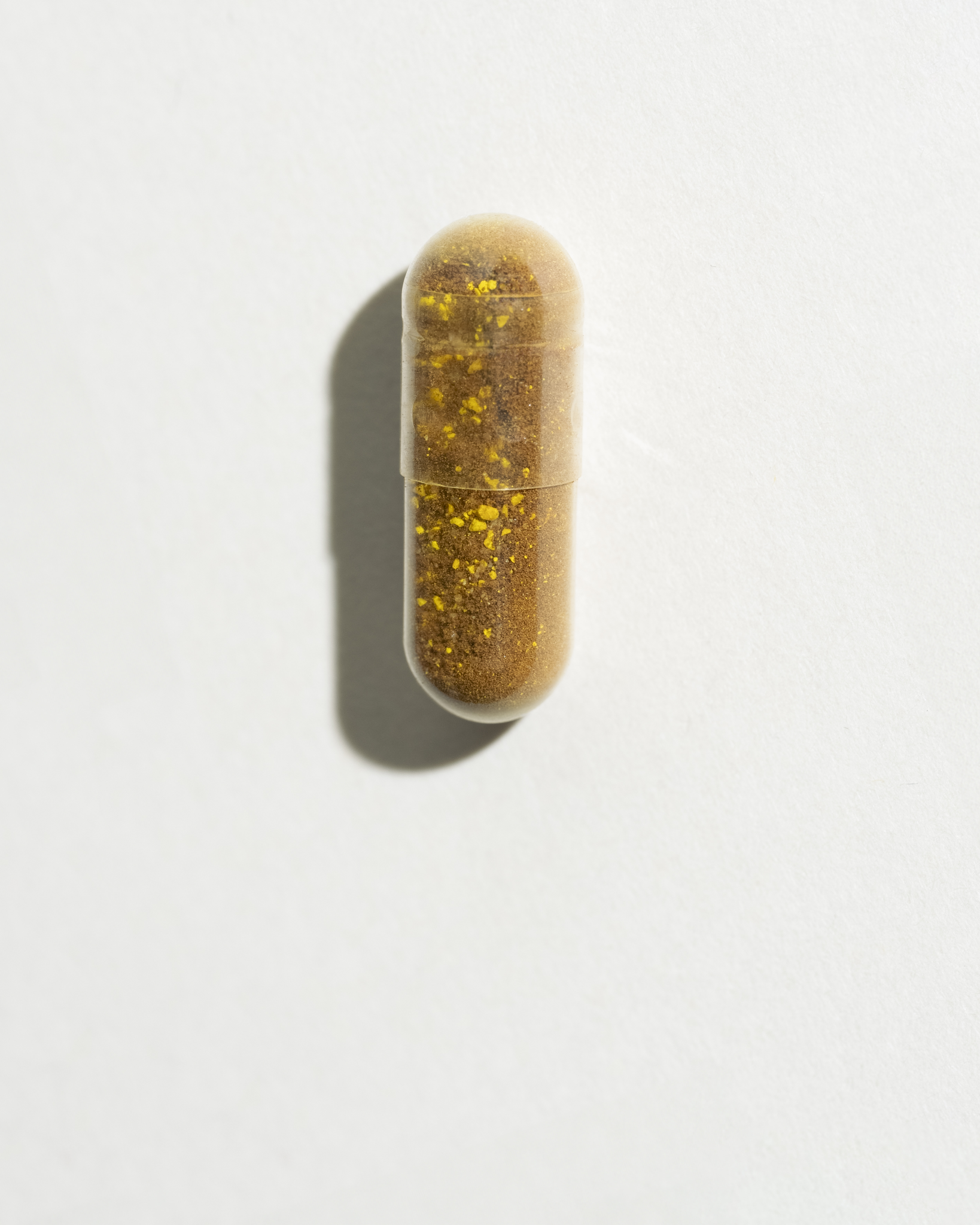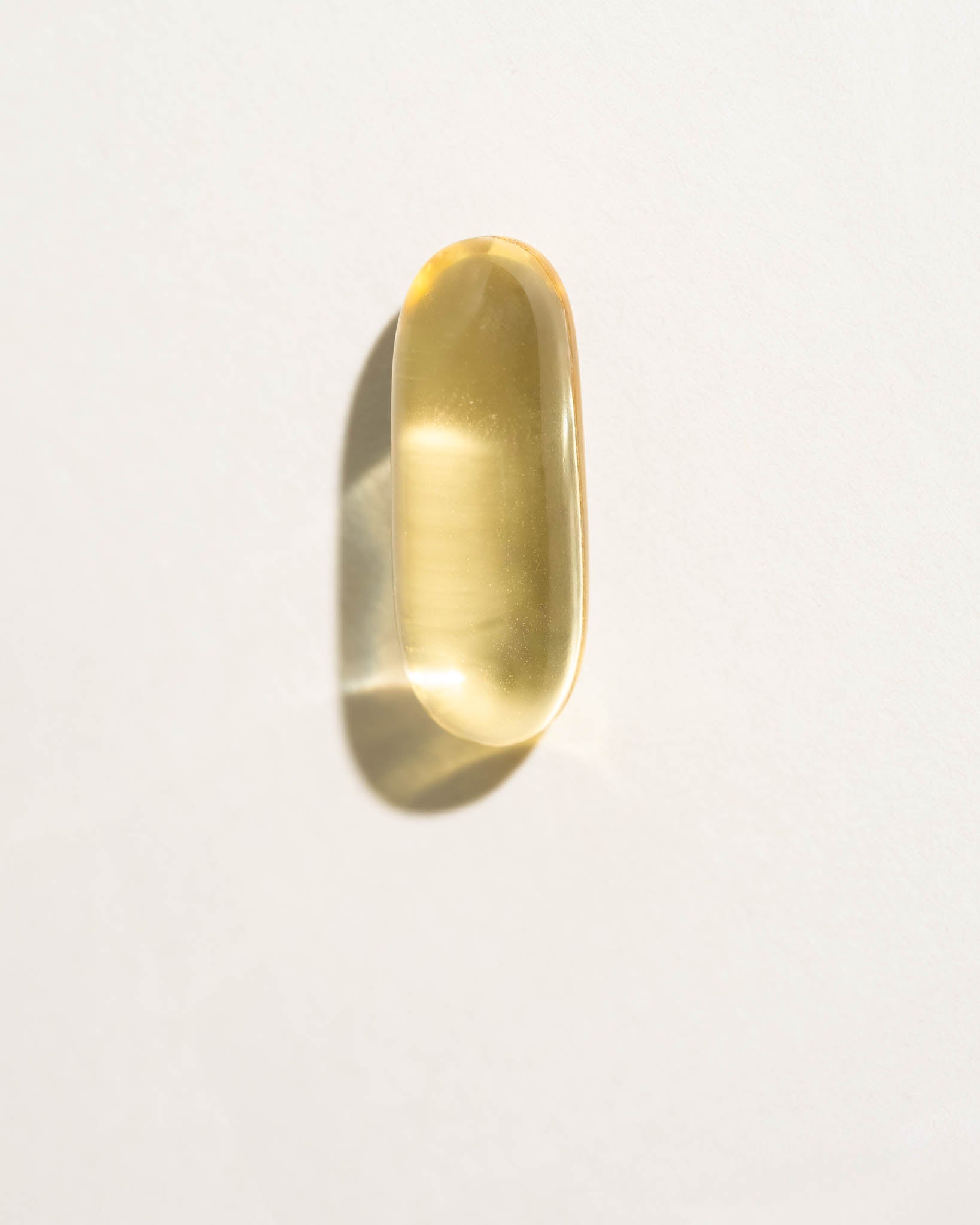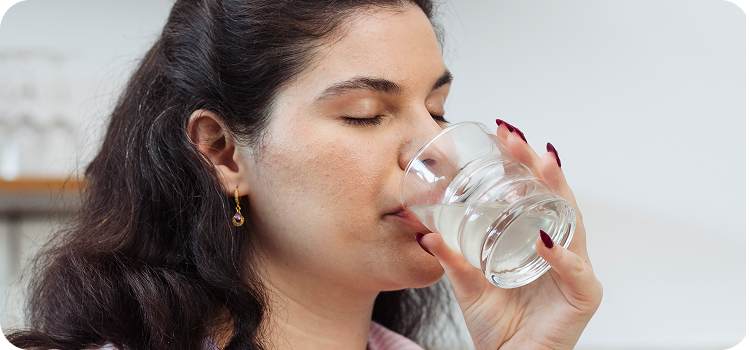Table of contents
- 01. The 8 golden rules to eat your way through PCOS (without losing your mind)
- 02. Rule #1: Balance is your bestie
- 03. Rule #2: Keep sugar spikes on a leash
- 04. Rule #3: Omega 3s - anti-inflammatory superheroes
- 05. Rule #4: Eat the rainbow 🌈
- 06. Rule #5 : Don't fuel the fire
- 07. Rule #6: Dodge hormone disruptors
- 08. Rule #7: Show your gut some love
- 09. Rule #8: Find your balance
The 8 golden rules to eat your way through PCOS (without losing your mind)
PCOS (Polycystic Ovary Syndrome) is basically your hormones throwing a wild house party without asking you first. Too many androgens (that’s testosterone & co.) = unwanted guests like acne, extra hair, irregular cycles, and sometimes stubborn weight.
And here’s the kicker: it’s not just about symptoms — PCOS also increases the risk of insulin resistance, type 2 diabetes, and heart issues.
👉 But here’s the good news: your plate is one of your strongest allies. Food has the power to calm the chaos, balance blood sugar, and keep hormones from going rogue.
And if you’re totally lost on where to start, take our free PCOS product quiz — it’ll point you towards a personalised routine with diet + supplements that fit your type of PCOS.
Rule #1: Balance is your bestie
Having a balanced diet is the foundation of any nutritional management! PCOS or not. And varying your foods is essential to diversify your intake of vitamins and minerals and thus avoid any deficiencies.
So, in practice, how do you go about doing just that?
Create balanced dishes with:
- Vegetables (raw or cooked, mashed, in soup...
- Carbohydrates (rice, potatoes, pasta, lentils...)
- Proteins (meat, fish, eggs, legumes, vegetarian equivalents)
- Fat (olive oil, rapeseed oil...)
If you're still hungry, you can of course add a dairy product, a fruit, and/or a little bit of dark chocolate, for example.
And diversify, diversify, diversify!
👉 For an extra hand, our Ovastart supplement was made to support hormonal balance and cycles with myo-inositol, folate, and other goodies.

Rule #2: Keep sugar spikes on a leash

PCOS and blood sugar drama go hand in hand. What does that mean? When we ingest food containing carbohydrates ("sugars"), our blood sugar level (glycemia) increases. To regulate this increase, our pancreas secretes a hormone called insulin which helps to lower blood sugar levels. That is why insulin is called the “low glycemic” hormone.
The main issue with PCOS primarily comes from insulin resistance, found in a large number of women with the syndrome.
Insulin resistance will block insulin from entering cells. So, blood sugar levels do not decrease anymore. With blood sugar still high, the pancreas will continue to synthesise insulin. There will therefore be too much insulin in the blood. Unfortunately, this excess insulin will lead to overproduction of androgens (the main cause of PCOS) as well as inflammation (a possible driver of PCOS), not to mention various symptoms such as weight gain, fatigue, or sugar cravings, amongst others.
👉 Struggling with cravings or afternoon slumps? Sugar Balance (with berberine, NAC, and cinnamon) was designed exactly for that.
For the full deep dive, check out our article: Insulin Resistance and PCOS: What’s the Link?
So how do you achieve a low glycemic diet?
It's important to keep your blood sugar levels stable throughout the day.
Here are some tips to help you do just that:
- Eat vegetables with every meal:
Vegetables are high in fibre, which helps limit blood sugar spikes caused by meals. So, include vegetables in all your dishes: raw or cooked, mashed, in soup, etc. Variety is key!
- Add proteins:
Add animal proteins (meat, fish, or eggs) or plant-based proteins (legumes, vegetarian alternatives). Proteins help boost metabolism, control appetite, and improve sugar regulation. They also play an important role in hormone synthesis such as oestrogen, testosterone, and insulin.
- Optimise your daily intake of omega-3 fatty acids:
Omega-3s are mainly found in some vegetable oils (rapeseed oil, walnut oil, flaxseed oil, or hemp oil), fatty fish (mackerel, sardines, herring, anchovies), and some nuts including almonds, walnuts, and hazelnuts.
Omega-3 fatty acids are molecules that help limit insulin secretion. Cherry on top of the cake, they are excellent natural anti-inflammatories!
👉 Or take the shortcut with SOVA Omega-3. Two capsules = high-quality EPAX® fish oil with top levels of EPA & DHA, without the fishy burps.
- Favour whole grains and legumes:
Whole grains and legumes are rich in fibre. The fibre they contain helps limit postprandial blood sugar spikes (after meals).
- Prefer a protein-rich and fatty breakfast:
Our insulin receptors are renewed overnight. Therefore, in the morning, our body is very sensitive to this hormone. Moreover, too many carbohydrates in the morning lead to reactive hyperglycemia and thus insulin secretion. I advise you to have a protein and fat filled breakfast even if you shouldn’t forget to provide some carbohydrates, which are our body's fuel.
- Add acidity to the dish:
Apple cider vinegar and lemon juice are great allies to help regulate blood sugar levels. So whenever fitting, think about adding them.
- Have snacks between meals if you're hungry:
If you're hungry between meals, prepare salty or low glycemic snacks. It's essential to listen to hunger cues and know how to adapt snacks to PCOS.
- Avoid eating sugary foods on their own:
Keep in mind that if you just eat a fruit for snack, you will induce a blood sugar spike and thus an insulin spike. However, if you have a yoghourt with your fruit, the proteins and fat it contains will help reduce this spike.
- Prefer al dente cooking:
The more you cook carbohydrates, the higher the glycemic load will be.
- Restrict processed and refined grains:
Processing and refining significantly increase the glycemic index. Therefore, do favour foods in their most unprocessed form.
- Pay attention to your fruit consumption:
Fruits are naturally sugar-rich (fructose). To limit their impact on your blood sugar level, refrain from eating more than two to three fruits per day and prefer them not too ripe (the riper, the sweeter). Above all, eat them after a fibre-rich meal and not in isolation (no more fruit only snacks!).
Rule #3: Omega 3s - anti-inflammatory superheroes
Think of them as your internal fire extinguisher. Studies show they can improve insulin sensitivity and cool down inflammation.
How to incorporate them into your daily routine?
- Favour omega-3 rich oils: walnut oil, rapeseed oil, flaxseed oil, hemp oil... (only for seasoning, not for cooking!). You can add a tablespoon to each major meal.
- Eat fatty fish (mackerel, sardines, anchovies, herring) twice a week. Although tuna and salmon are also fatty fish, be cautious with them since being higher up in the food chain, they absorb more heavy metals than smaller fish (mackerel, sardines, etc.)*.
- Eat nuts, especially almonds, walnuts, or hazelnuts. You can have a handful per day.
- Get omega 3-rich eggs.
You must get your omega-3 fatty acids from your diet as the body cannot synthesise them! Supplementation can also be beneficial, especially with PCOS, as it can be challenging to get an adequate daily intake from food. Discover SOVA's Omega 3 supplements, high quality Epax and certified Friends of the Sea.
Indeed, modern diets are often richer in omega-6 than omega-3 fatty acids, creating a significant imbalance.
Rule #4: Eat the rainbow 🌈

Have you ever heard of free radicals? These are unstable molecules which, if excessively eaten or produced, create what we call "oxidative stress". That means they can oxidise your cells, thus accelerating premature skin ageing and increasing the risk of developing various degenerative, chronic, or inflammatory diseases!
Various studies show that an optimised intake of antioxidant polyphenols may help limit oxidation, inflammation, and the onset of some diseases (Zhang & Tsao, 2016).
In the context of PCOS, as we focus on an anti-inflammatory diet, we'll be optimising their intake!
In practice, I have two pieces of advice for you:
- Advice #1: prepare colourful dishes!! Diversify fruits, vegetables, and spices! The more colourful, the richer in antioxidants.
- Advice #2: eat curcumin (turmeric) and EGCG (green tea). These are two highly interesting polyphenols for fighting inflammation. Be aware not to drink green tea during a meal as it limits iron absorption.
Note that ginger and cinnamon are also two interesting spices, and dark chocolate contains polyphenols! Good news, right? (70%+ though… not a whole bag of Dairy Milk 😏).
*Dietary polyphenols, oxidative stress, and antioxidant and anti-inflammatory effects. H Zhang, R Tsao
Rule #5 : Don't fuel the fire
Inflammation being one of the main drivers of PCOS, it's necessary to limit (not eliminate!) certain food intakes that can promote this inflammatory environment.
But what are these foods?
Food #1: Sugar!
Sugar intake raises blood sugar levels. In response to that and as mentioned earlier, the pancreas secretes insulin (hypoglycemic hormone). The problem is that excess secretion of this hormone is pro-inflammatory and stimulates androgen production. So, refrain from sugar and sugary products as much as possible.
In order to do that, I recommend preparing homemade cakes / cookies where you can control the ingredients. Also, eat them after a fibre-rich meal. Avoid sodas and fruit juices as well. There is a significant amount of sugar (fructose) and little fibre in a glass of fruit juice.
Food #2: Dairy products of animal origin* (milk, yoghourt, cheese, cottage cheese, etc.)
The main issue with animal-derived dairy products is the endocrine disruptors and natural hormones contained in their fat. That's why it's beneficial to stick to two servings per day tops.
You can add variety with plant-based alternatives (almond, hazelnut, etc.). However, be cautious with coconut milk as its high saturated fat content doesn't make it your best ally.
It's important to note that no scientific study has proven a link between inflammation and lactose.
*Relieving endometriosis through an anti-inflammatory diet, Anne-Charlotte Garet and Céline De Sousa
Food #3: Some meats (red meat, fatty meats, and processed meats)
These meats tend to be pro-inflammatory due to high content of long-chain saturated fatty acids and methylamine (Harvard T.H. Chan School of Public Health). Therefore, I advise reducing them to twice a week and favouring lean meats such as poultry.
Food #4: Gluten
Gluten is a trendy topic, and current studies do not actually prove its involvement in inflammation. Many studies are ongoing, and hypotheses are being experimented with. However, some studies suggest that a gluten-free diet could relieve inflammatory symptoms in various diseases (Boland & Delcour, 2020).
Therefore, as a precaution, I advise reducing daily gluten intake and favouring naturally gluten-free starches (potatoes, rice, etc.).
However, be cautious with gluten-free products available on the market. Some are highly dubious in terms of ingredients.
*"The role of gluten in systemic inflammation in adults without celiac disease. A narrative review" Boland, Pauline; Delcour, Louis
Food #5: Alcohol
Drinking alcohol when already plagued with inflammation is like throwing a match into gasoline! Sorry if you're a fan of happy hours, but it's important to refrain from alcohol consumption.
Also, be mindful of both cocktails that can be very sugary, and sweet white wine, which is loaded with sugars compared to dry wine.
Note that these foods are not to be banished from your diet but to be limited. That’s the difference, and you shouldn't neglect having a bit of fun if you like them!
You just have to find the right balance

Rule #6: Dodge hormone disruptors
According to the World Health Organization (WHO), an endocrine disruptor is a substance or mixture of substances that alters the functions of the endocrine system and, as a result, induces harmful effects on organisms, their offsprings, or (sub-)populations.
Endocrine disruptors can thus disrupt hormonal functions and have adverse effects on your health!
But how can you limit intake?
- Prefer organic fruits and vegetables, especially when not peeling them and consuming them raw.
- Favour food products with short ingredient lists, containing few additives.
- Do not use plastic food containers, and do not heat them up.
- Favour hygiene products and household products with natural and organic ingredients. White vinegar is your best friend!
- Wash new clothes before wearing them and prefer second-hand ones.
- Air out your home daily.
- This list is not exhaustive.
Rule #7: Show your gut some love
The intestinal mucosa is like a filter whose role is to allow nutrients to pass through while preventing undesirable molecules from doing the same. This mucosa is composed of cells that have tight junctions used as a shield against external aggressions.
The problem is that damage to your intestinal mucosa will lead to intestinal permeability. The junctions will no longer be tight enough and will allow all kinds of undesirable molecules to come in. These molecules will then trigger an immune response from your body and therefore inflammation!
That's why it's essential to take care of your intestines. I therefore advise you to eat enough fibre, taking into account any intolerances you may have. Seek assistance if you have chronic digestive problems.
You can also take regular probiotic supplements to feed your gut microbiota. Kombucha and kefir contain natural probiotics, so if you enjoy these drinks, you can drink a glass daily. To repair intestinal permeability, it may also be beneficial to get some glutamine.
👉 Read more in our article: PCOS and Inflammation: Explanations & Tips
Rule #8: Find your balance
Yes, the keyword is BALANCE!
Too much deprivation can quickly lead to eating disorders. So, go for foods that are good for PCOS and find more suitable alternatives to foods you should refrain from.
For example: replace white bread with buckwheat bread, sweets with a piece of dark chocolate (the higher the cocoa %, the better 😉).
Making gradual changes in your daily life, you'll be able to stick with them in the long run. It's about tackling one goal at a time! Dietary habits don't change in a day, nor even in a few weeks.
Keep in mind that we’re not, in fact, talking about starting a new diet but a new lifestyle which will be healthier and more in tune with the goal of fighting PCOS.
The important thing is to find your balance and don't hesitate to seek assistance from a dietician specialising in PCOS who will provide you with tailored follow-up in line with your habits.
And if you’re wondering where supplements might fit in, our PCOS product quiz will help you figure out whether Ovastart, Sugar Balance, or Omega-3 are your best match.
- Insulin resistance : A reduced sensitivity of cells to insulin, leading to higher insulin levels in the blood. It is very common in PCOS and strongly influenced by diet.
- Low glycaemic load : A way of eating that limits sharp blood sugar spikes by prioritising foods that release glucose slowly, such as whole grains, legumes and vegetables.
- Chronic inflammation : A persistent low-grade inflammatory state that can worsen hormonal imbalance and PCOS symptoms. Diet plays a major role in modulating inflammation.
- Anti-inflammatory diet : A dietary approach rich in vegetables, fruits, healthy fats and antioxidants, aimed at reducing inflammation and supporting hormonal health.
- Gut health : The balance and function of the digestive system and microbiota, which can influence inflammation, insulin sensitivity and hormone metabolism.
- Adrenal response : The way the adrenal glands react to stress by producing cortisol and androgens, which can impact PCOS symptoms in stress-related or adrenal PCOS.
- Protein balance : Ensuring sufficient protein intake to stabilise blood sugar, support satiety and reduce insulin spikes.
- Ultra-processed foods : Foods that are highly refined and often high in sugar, refined carbohydrates or additives, which can worsen insulin resistance and inflammation.
- Micronutrients : Vitamins and minerals (such as magnesium, zinc or B-vitamins) that play a role in metabolic and hormonal pathways relevant to PCOS.
SOVA was created by two sisters with PCOS who wanted products that truly worked. Our formulas are developed in-house with women’s health and micronutrition experts, using ingredients backed by clinical studies and compliant with European regulations.
- Built by women with PCOS, we know the reality of the symptoms.
- Clinically studied, high-quality ingredients, including patented forms like Quatrefolic® and an optimal Myo-/D-Chiro Inositol ratio.
- Holistic support for hormonal balance, metabolic health, inflammation, mood and cycle regulation.
- Transparent, science-led formulas with no unnecessary additives.
